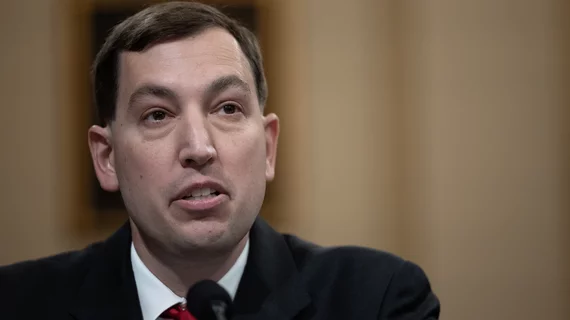The physician shortage is here: AMA implores Congress to address ‘urgent crisis’
In a national address Wednesday, the president of the American Medical Association implored Congress to address the growing shortage of radiologists and other physicians that is crippling the U.S. healthcare system.
Anesthesiologist Jesse M. Ehrenfeld, MD, MPH, delivered his remarks at the National Press Club in Washington, highlighting the growing list of challenges physicians are facing in 2023. These include “enormous” administrative burdens, burnout, attacks on science, consolidation and a “broken” Medicare payment system.
Ehrenfeld—who took over the AMA leadership role in June—implored lawmakers to address these issues before they worsen.
“Physicians everywhere—across every state and specialty—continue to carry tremendous burdens that have us frustrated, burned out, abandoning hope … and in increasingly worrying numbers, turning our backs on the profession we’ve dedicated our lives to,” Ehrenfeld said Wednesday.
He offered up five potential solutions to address the crisis and boost the physician workforce:
- Pass meaningful Medicare payment reform.
- Reduce administrative burdens such as the “overused, inefficient” prior authorization process.
- Pass bipartisan legislation to expand residency training options, provide greater student loan support and create smoother pathways for foreign-trained physicians.
- End the “criminalization of healthcare,” a reference to the overturning of Roe v. Wade and efforts to curtail the delivery of healthcare services to trans patients. Fourteen states have banned abortion, Ehrenfeld noted, while 22 have enacted laws restricting or banning gender-affirming care.
- Ensure physicians are not punished for taking care of their mental health needs—1 in 10 physicians did not seek mental health treatment because they feared their medical board or employer might find out, according to a recent Medscape survey.
“Our nation’s physician shortage is not a problem to set aside and deal with tomorrow. It is an urgent problem we need to address today,” Ehrenfeld closed. “We must take action to create a stronger and more resilient physician workforce to care for an ever-changing nation. We must ensure that you, me, and everyone else in America has a physician to care for them, or a parent, or a family member, in their time of need. Most of these solutions have bills pending in Congress with strong bipartisan support, and momentum growing in many states to put other safeguards in place. There isn’t much that our two major political parties see eye to eye on right now, but on these issues they do. We just need the will—and the urgency—to get it done. We need leaders in Congress to step forward and make this happen. Sadly, every day we wait the size of this public health crisis grows. We need action today."

